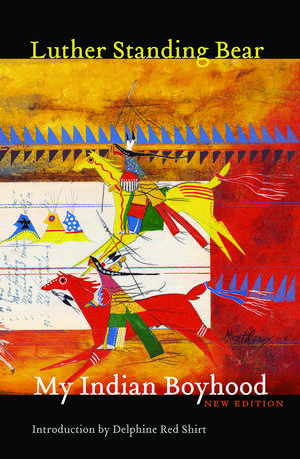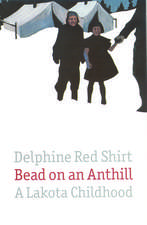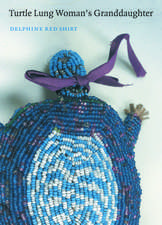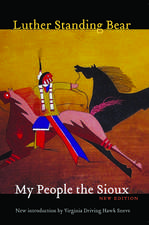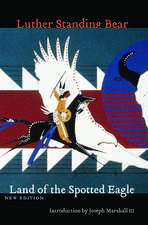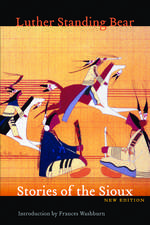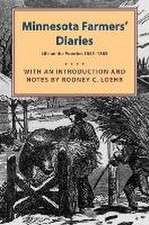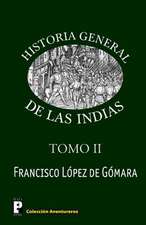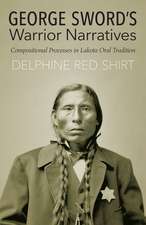My Indian Boyhood
Autor Luther Standing Bear Introducere de Delphine Red Shirten Limba Engleză Paperback – noi 2006
Preț: 91.73 lei
Nou
Puncte Express: 138
Preț estimativ în valută:
17.55€ • 18.38$ • 14.52£
17.55€ • 18.38$ • 14.52£
Carte disponibilă
Livrare economică 15-29 martie
Livrare express 04-08 martie pentru 37.25 lei
Preluare comenzi: 021 569.72.76
Specificații
ISBN-13: 9780803293342
ISBN-10: 0803293348
Pagini: 198
Ilustrații: Illus.
Dimensiuni: 135 x 203 x 13 mm
Greutate: 0.25 kg
Ediția:Nouă
Editura: BISON BOOKS
Colecția Bison Books
Locul publicării:United States
ISBN-10: 0803293348
Pagini: 198
Ilustrații: Illus.
Dimensiuni: 135 x 203 x 13 mm
Greutate: 0.25 kg
Ediția:Nouă
Editura: BISON BOOKS
Colecția Bison Books
Locul publicării:United States
Notă biografică
Luther Standing Bear is the author of Stories of the Sioux, My People the Sioux, and Land of the Spotted Eagle (all available in Bison Books editions).
Delphine Red Shirt is a member of the Oglala Sioux tribe and the author of Turtle Lung Woman's Granddaughter and Bead on an Anthill: A Lakota Childhood, both available in Bison Books editions.
Recenzii
"The book is replete with information. Standing Bear details many native beliefs and interpretations, as well as the symbolism, of the things of nature that guided the very lives of the Lakota, and makes lucid many conceptions that white people have usually regarded as mere superstition because not understood."—Saturday Review of Literature
